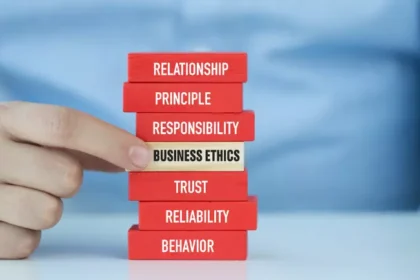The Role of Emotional Intelligence in the Workplace 2024, In any professional setting, raw technical skills and factual knowledge alone are rarely enough to achieve sustainable success. As much as we’d like to think that offices and organizations operate solely through coldly rational and impartial rules, the inescapable reality is that human emotions play a powerful undercurrent in workplace dynamics.
Emotional intelligence (EQ) – the ability to recognize, understand, and manage emotions in ourselves and others – is arguably one of the most critical yet undervalued factors in determining career effectiveness and leadership prowess. While intellectual intelligence (IQ) remains important, studies indicate that emotional intelligence accounts for a staggering 67% of the abilities needed for superior performance. Developing high EQ is no longer just an asset, but a modern necessity.
At a fundamental level, emotional intelligence allows us to cultivate deeper self-awareness. Through tuning into our own emotional patterns, triggers, and tendencies, we gain a higher degree of understanding and control over how we respond to different situations and interpersonal dynamics. This insight into what makes us tick prevents unproductive reactions driven by runaway feelings like anger, anxiety, or insecurity.
Beyond just regulating our own emotions, high EQ individuals sensitively attune to the expressed and unstated emotional landscapes of their colleagues and team members. They develop a refined ability to read verbal and nonverbal cues, sense group dynamics, and pick up on subtle social signals that those driven purely by intellect or ego often miss. This allows them to navigate complex workplace politics, culture, and social fabrics with far more finesse.
With this deeper grasp of both internal and external emotional realities, emotionally intelligent professionals can employ critical soft skills like empathy, rapport-building, and perspection-taking. They’re able to move beyond simply understanding the technical or rational aspects of a situation, and gain clarity on the underlying emotional motivations and impacts involved. Not only does this unlock more creative solutions and positive influence, but it cultivates trust and connection.
Teams and organizations with emotionally intelligent members benefit from an increased level of engagement, morale, and commitment. When people feel their emotional footprints are acknowledged and valued, they’re far more likely to invest their passion and full energy in collaborative efforts. In contrast, groups without EQ often languish in petty conflicts, miscommunications, and missed opportunities due to interpersonal blind spots.
Leaders who exhibit high emotional intelligence are especially vital for creating cohesive, mission-driven cultures of psychological safety. Their awareness and management of moods, interactions, and team dynamics allows them to proactively resolve toxicity while fostering environments where everyone feels comfortable taking healthy risks, voicing concerns, and contributing their full talents. This unlocks innovation and discretionary effort in ways that emotionally-deficient leadership cannot.
On an individual level, those with finely-tuned EQ skills tend to demonstrate stronger self-motivation and purposefulness in their work. By staying grounded in their core values and emotional drivers, they derive deeper meaning and satisfaction rather than becoming demoralized by setbacks or rudderless amid shifting demands. This emotional fortitude and self-efficacy sustains them through grueling challenges and change that could easily derail those who lack it.
Of course, raw intellectual horsepower and technical abilities remain vital, and EQ alone cannot substitute for professional incompetence or lack of expertise. However, the point is that even the most brilliant expert will be substantially hobbled if they cannot apply their knowledge with interpersonal wisdom and emotional adroitness. A high IQ individual lacking EQ operates at a deficit because they cannot fully connect with or inspire those around them to maximize cooperation and cohesion.
Throughout the arc of any career, emotional intelligence pays dividends across a wide spectrum of high-stakes situations. From delivering feedback to negotiating contracts, mediating conflicts to managing teams, and selling ideas to executives – the ability to attune to emotional undercurrents and craft situations for positive emotional experiences proves indispensable. Professionals who learn to make emotions their allies rather than blind spots will consistently outperform their emotionally illiterate counterparts in the long run.
One of the confounding complexities about emotions in the workplace is that suppressing and compartmentalizing them is impossible. They will manifest regardless, whether through our behaviors, mindsets, decisions, or actions. Rather than attempting emotional denial, emotionally intelligent individuals accept emotions as data and realities to be strategically understood and navigated. They realize that rationalizing away feelings creates just as many problems as indulging them recklessly.
Fortunately, while some people do have stronger innate emotional intelligence, it remains a capability that can be systematically developed and strengthened through practice and intentional effort. By building self-awareness through exercises like journaling, feedback, and mindfulness routines, people can start tuning into their inner experiences and emotional patterns. Applying that awareness wisely in team scenarios and relationships creates a positive cycle of growth.
Additional education via emotional intelligence training programs, books, and resources can also structure this growth. Tools like optimism, empathy-building activities, and perspective-taking can be learned and integrated into everyone’s emotional repertoire. Organizations smart enough to invest in EQ development for their people gain an outsized return through increased performance and efficiency.
As artificial intelligence and automation proliferate, human skillsets that differentiate us from machines – like emotional intelligence, creativity, and interpersonal dexterity – become even more precious and marketable. While robots may surpass computers at processing data and technical analysis, humans with high EQ retain formidable advantages in realms like emotional labor, diplomacy, and driving change.
In the age of industry disruption and increased complexity, teams and organizations of the future will live or die based on their emotional capacity. Those able to cultivate cultures of trust, empowerment, and healthy emotional regulation will dominate their competitors. Meanwhile, cultures marred by fear, toxicity, and emotional illiteracy will struggle to weather inevitable storms of change.
Whether you’re an individual striving to maximize your professional impact or a leader responsible for steering teams, emotional intelligence belongs at the forefront of your development priorities. By honing this essential skill, you empower yourself and those around you to thrive as resilient, empathetic, and highly realized human beings. In the end, this human capacity is what will matter most in our shared workplace journey ahead.








